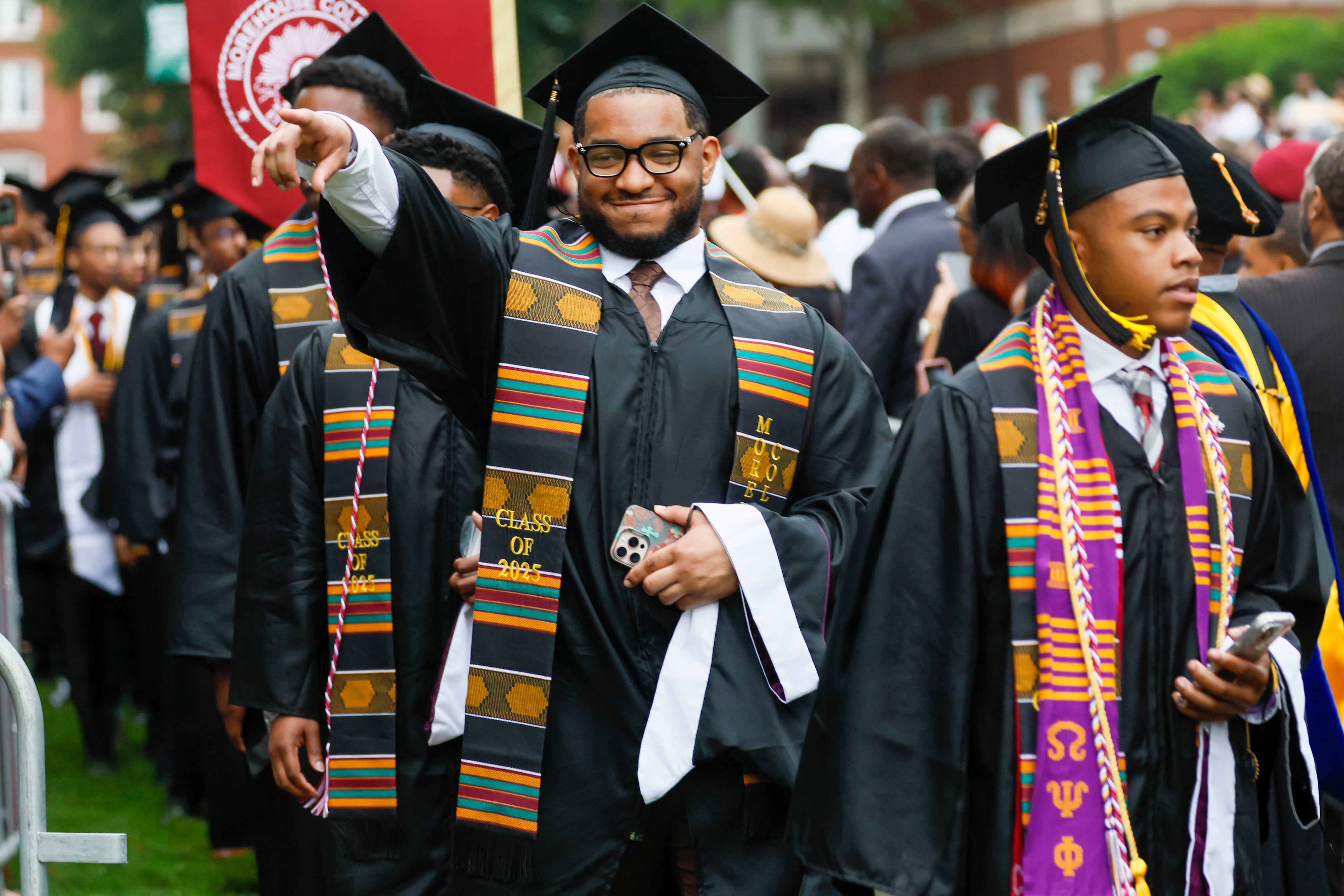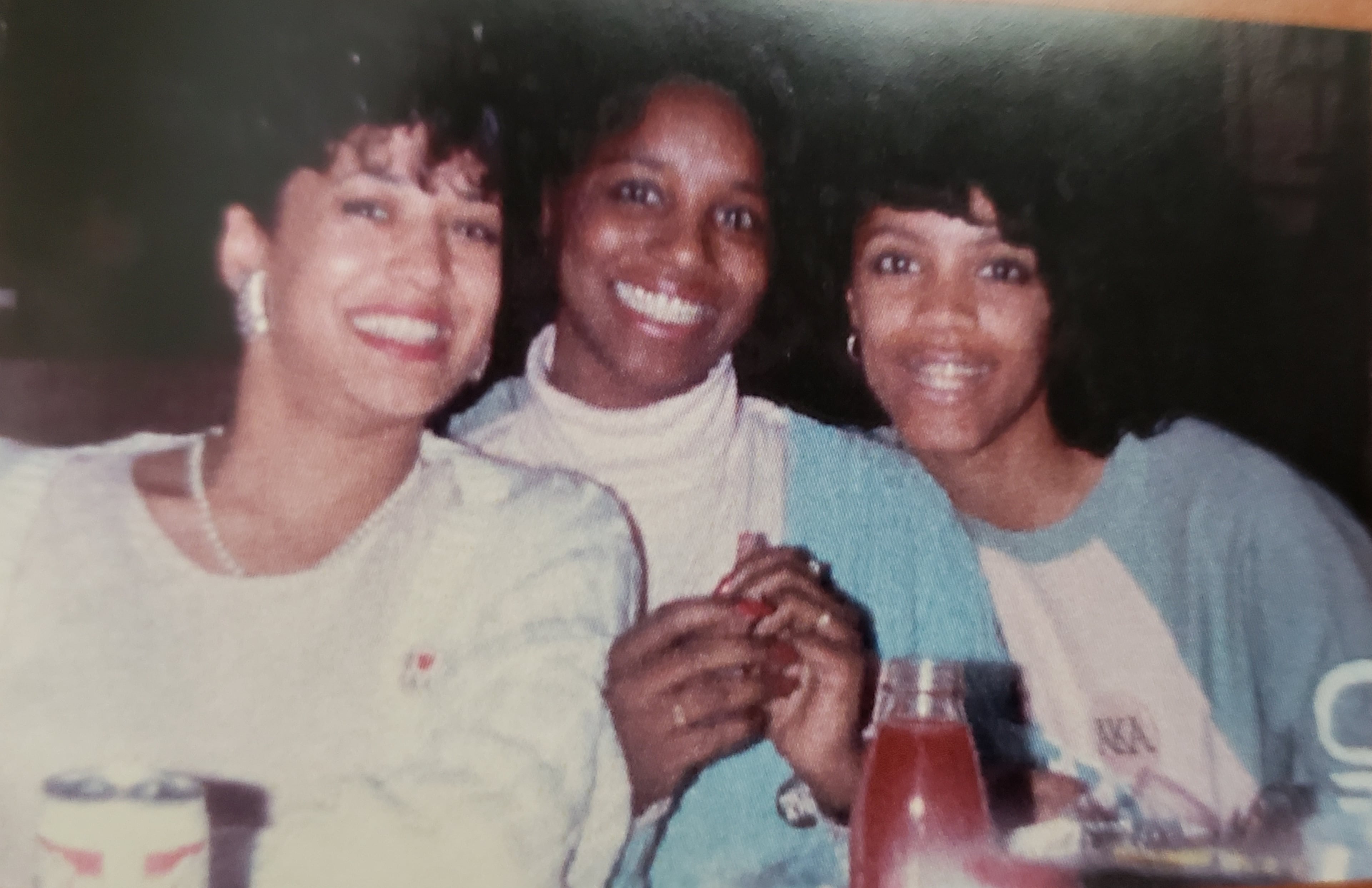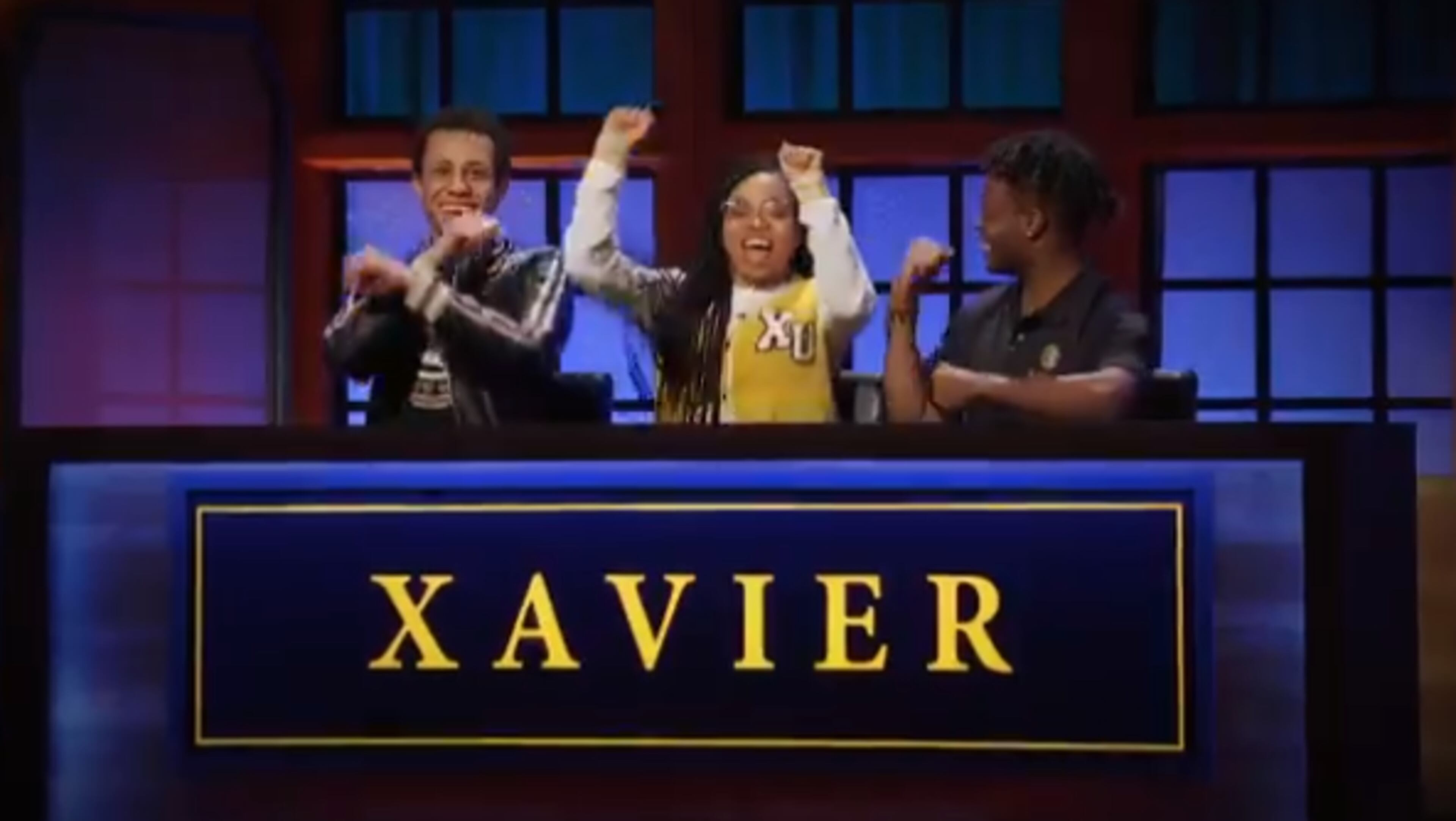How Spelman crushes U.S. News college rankings every year

They say nothing is certain except death and taxes.
You might add Spelman College to that list.
For the 19th consecutive year, the Atlanta-based, all-women’s college has claimed the top spot among historically Black colleges and universities in U.S. News & World Report’s rankings.

“Being recognized as the nation’s top HBCU for the 19th consecutive year is a tremendous honor and a reflection of our unwavering commitment to academic excellence, leadership development and the empowerment of our students,” Spelman interim President Roz Brewer said.
At No. 37, Spelman remains among the top 40 Best National Liberal Arts institutions, and the school was also ranked No. 2 among liberal arts schools for social mobility, which was based on enrolling and graduating large proportions of disadvantaged students awarded with Pell Grants.

“We are proud of our legacy of excellence and student success and stand ready to boldly embrace our future,” said Brewer, who graduated from Spelman in 1984. “As we continue to lead in liberal arts education and social mobility, we remain committed to preparing our students for the world as it is and as they will shape it. “
Universities often tout a high ranking — in any category — to recruit prospective students. Alumni do the same.
Kirstin Johnson Nixon, a Minneapolis school social worker and 1987 Spelman graduate, has been burning up her alumni network with news of the latest recognition. She said Spelman’s consistent No. 1 ranking comes at a pivotal moment, when Black women are being called into more political, moral and cultural leadership roles.
“Our curriculum is wonderful, and it’s designed for Black women. Black women lead the charge in this nation when it comes to being highly educated,” said Nixon, who credits Spelman with giving her the foundation to succeed and lead. “I wouldn’t be half the person I am today if I hadn’t gone to Spelman.”

Amour Carthy, a first-generation college student and 1997 graduate of Spelman College, described her time at the women’s college as transformative. After Spelman, she earned master’s degrees from both Temple University and Harvard University before founding Education Innovation, a company that guides students and their families through the college admissions process.
“I believe it was because I went to Spelman that all those opportunities opened up for me,” she said. “Spelman taught me to be fearless. I don’t necessarily take ‘no’ for a answer. I keep going until I can get to a ‘yes.’ And if something is not there or made for me, I’m willing to just make it myself.”
In Georgia, following Spelman on the HBCU list was Morehouse College at No. 3, moving up two spots from last year. Morehouse experienced a record 6,217 applications for the class of 2029. According to school officials, because of the high demand to attend the nation’s only HBCU for Black men, the college’s admittance rate dropped to 33% compared to 44% in 2024 and 52% in 2023.

Checking in at No. 16 among HBCUs was Clark Atlanta University, which is in the middle of a $250 million capital campaign and received nearly 50,000 applications for this year’s class of 2029. CAU also ranks 52nd among national universities in social mobility, tied with Princeton.
“This distinguished recognition underscores the vital importance of social mobility in our mission, highlighting our unwavering commitment to academic excellence and innovation.” said Clark Atlanta University President George T. French Jr., Ph.D. “We empower our scholars to reach their fullest potential on a global stage. As we continue to shatter barriers and create transformative opportunities, we remain resolute in cultivating an environment where every scholar can flourish.”

Rounding out Georgia schools on the HBCU list, Fort Valley was No. 28, Albany State No. 40 and Savannah State No. 50.
But back at the top of the list, Spelman’s long reign continues to resonate most deeply with the students who carry its legacy forward.
“Spelman has always set the standard, serving Black women with excellence, sisterhood and power that the world cannot ignore,” said Taylor Mills, the 42nd Miss Spelman College. “This recognition proves what we already know: There is truly no place like Spelman.”
Top 10 HBCUs according to U.S. News & World Report
1 Spelman College — Atlanta: Founded in 1881, Spelman is the nation’s top HBCU for nearly 20 years. Alumnae include Marian Wright Edelman and Stacey Abrams. Spelman consistently ranks as the top HBCU for producing Black women leaders across all fields.
2 Howard University. Washington, D.C. The “Mecca” ranks 88th among national universities and enrolls over 11,000 students. It is arguably the most comprehensive HBCU in the country, with an executive MBA program and colleges of dentistry, law, medicine and pharmacy. Former Vice President Kamala Harris, as well as late actor Chadwick Boseman and Nobel Prize-winning author Toni Morrison, are Bison.

3 Morehouse College. Atlanta. Founded in 1867, “The House” is the only HBCU in the country for men. Morehouse is known for its unique focus on cultivating ethical male leaders, like the Rev. Martin Luther King Jr., Sen. Raphael Warnock, Spike Lee, Maynard Jackson and Edwin Moses, who are Morehouse Men.
4 Tuskegee University. Tuskegee, Alabama. “Skegee,” was placed on the map in 1881 by its founding principal, Booker T. Washington, and solidified as a top research institution by George Washington Carver. Lionel Richie and The Commodores got their start on campus and author Ralph Ellison and Betty Shabazz, civil rights activist and wife of Malcolm X, are graduates.
5 Florida A&M University. Tallahassee, Florida. FAMU is the highest-ranked public HBCU on the list, offering a range of undergraduate, graduate and professional degrees. It boasts one of the largest HBCU alumni networks in the country. Former Atlanta Mayor Keisha Lance Bottoms, Georgia U.S. Rep. David Scott and tennis great Althea Gibson are graduates.
6 Xavier University of Louisiana. New Orleans. Founded in 1925, Xavier sends more African American students to medical school than any other university nationwide. Former Labor Secretary Alexis Herman and former Surgeon General Regina Benjamin are graduates.
7 Hampton University — Hampton, Virginia. Founded in 1868, Hampton blends liberal arts, sciences and professional programs with a strong leadership focus. Many consider its campus, surrounded on three sides by water, the most beautiful of all HBCUs. Comedian Wanda Sykes, Booker T. Washington and Martin Luther King’s mother, civil rights organizer Alberta Williams King, are graduates.
8 North Carolina A&T State University. Greensboro, North Carolina. “A&T,” as it is commonly called, is the largest HBCU in the country with a staggering 15,000 students. Founded in 1891, the school’s engineering programs have made it a STEM powerhouse. It has also produced civil rights leaders like Jesse Jackson and the Greensboro Four.
9 Morgan State University. Baltimore. Established in 1867, Morgan is Maryland’s flagship HBCU and features robust research programs. Noted publisher Earl Graves Sr. is a graduate of Morgan, as is former head of the NAACP Kweisi Mfume.
10 Delaware State University. Dover, Delaware. Founded in 1891, Delaware State has a nationally recognized aviation program and one of the fastest-growing STEM curricula at an HBCU. Three-time Super Bowl champion John Taylor attended DSU, as did musicians Clifford Brown and SZA.

